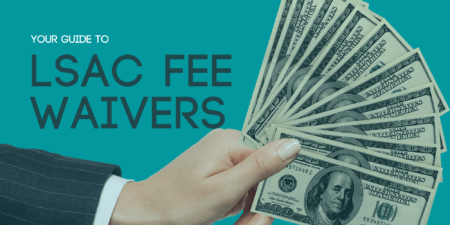SHOULD YOU TAKE A YEAR (OR MORE) OFF BEFORE LAW SCHOOL?
I bet many of the 0Ls happening upon this page will be wondering if there is some admissions advantage to be wrung from going straight to law school, or alternatively, from taking some time off and doing something to boost your resume. I understand this thinking- that is how most future law students think. I’m here to tell you that whether you take a year off is not, by itself, going to make or break you.
So instead of thinking like a future lawyer, think instead about what you want to do. I myself find it hard to believe that I share a species with individuals who wanted to go straight through to law school. Yet I have found there are plenty of people who seem perfectly happy having done just that. Others, like me, had to knock around a few years before we could settle back into the academic fold. Generally, you should do what makes you happy.
That said, I know future-lawyer types are not going to put something out of their mind until it has been given a full analysis, so let’s discuss how the decision whether to take a year off can affect your applications.
HOW TAKING TIME OFF MIGHT AFFECT (BENEFIT OR HURT) YOUR APPLICATION TO LAW SCHOOL:
Taking A Year Off Will Allow Law Schools To See Your Full Undergraduate Record
This might be good or it might not be so good, and of course that is entirely within your hands. When you apply to law schools your senior year with the intent of going straight through, law schools often will be making a decision on your application without seeing any of your senior year grades. If your GPA is at a 4.0, don’t worry, they know you are a great student and will not think twice about admitting you (provided everything else within your application is in order).
If however, you have a 3.2 or something like that, you could benefit significantly from using your senior year to boost your GPA. If you do apply at the beginning of your senior year with a low GPA, below the median or even 25th%ile range for that school, then the school may even wait to see your first semester grades before making a decision on your application. This might put you at a disadvantage because admissions occurs on a rolling basis, which means that by the time they make a decision on your application there are fewer spots left.
Bear in mind that having not been admitted to a school does not generally hurt you should you choose to apply to that same school next year. If you reapply the following year with better grades, they are likely to give you a full reconsideration.
Taking A Year Off Will Allow You To Get Some Good Real World Experience
Law schools generally like students that have substantive experience outside of school. This provides you with an opportunity to demonstrate your interests as person outside of academia. If you take a job in your year off, that shows law school admissions directors that you can be happy and functional in the working world. If you are one of the lucky people that can afford to take a mind-expanding tour of the world, you’re likely to return home with something great to write about in your personal statement.
Some schools, notably Northwestern, have a heavy interest in accepting students that have demonstrated the ability to succeed in business. Really impressing them might take more than a year though, at which point maybe you may be better off just sticking with that career. To me, this highlights another benefit of taking time off before law school: you may figure out that you don’t want to be a lawyer at all!
If, on the other hand, you still do want to be a lawyer after working for a little while, you probably have a much better answer to the question “why law is the right career for you?” Working in the law certainly doesn’t hurt you: law schools love taking students that know exactly what they are in for and are still passionate about joining the legal profession.
However, don’t get the idea that you have to work in the law either. If you look at law school incoming class profiles, you’ll see schools boasting proudly about the variety of professions that their students pursued before school. Law schools just want interesting, driven people among their ranks. Do something that makes you happy and keeps you busy, and you’ll be fine.
Those who really feel that they have not sufficiently distinguished themselves in undergrad should seriously consider taking some time off between undergrad and law school. Though law school admissions is heavily dependent on your numbers (GPA and LSAT), many of the best law schools in the US like to see some indication of personal development as well. If you were just bumming around during your summers in undergrad and you don’t have much to put on your application, consider getting out into the world and doing something. For schools in the top 14 or so, this might just be the difference-maker when it comes time to apply.
What NOT To Do With Your Time Off
This brings us to what you should NOT do if you decide to take a year off. Rolling around the floor of your apartment for a year while watching Hulu and eating ramen is not going to make you a more attractive applicant. Though it may be fun to spend your young twenties acting like an Always Sunny cast member, such a lifestyle may take some explaining when you finally get around to applying to law schools (or any grad program for that matter). If you want to be bohemian, make sure you are making the world a better place while you are doing it. Think Teach for America, not tending bar for college kids.
Likewise, half-heartedly entering the work force and getting fired from a job is not going to help you. Sure, you can cover up the three months that you worked a miserable job only to flunk out of it, but it’s going to make it much more difficult to spin that story into a great law school application. If you do take time off, make sure it is spent meaningfully.
WHY GOING STRAIGHT THROUGH UNDERGRAD TO LAW SCHOOL IS STILL FINE
For those who do wish to go straight through, fear not: law schools are chock-full of motivated students that simply don’t want or need any more time to figure out their lives. These students typically have robust summer internship experiences, have great grades, and are driven to get started with their professional careers as soon as possible. If this is you; fear not, for you are in excellent company. Law schools love academically-oriented students who enjoy school and know they want to continue.
I will say this though: anecdotally, many of the law students I met wished they took more time off or were thankful for having done so. While enrolling in law school isn’t exactly like enlisting in the Army, the path to being a lawyer is very regimented: generally you will be going straight through school, doing intense summer internships, taking the bar, then going straight into practice. Think hard about whether you want to wake up tomorrow (it’s going to feel like that) and be a transactional attorney. My personal recommendation is that you take some time off to go explore the world outside of academia for a little while first.




6 Comments
Thank you! This post was very helpful to me!
Hi guys!
Would you suggest applying to law school and deferring for a year (if accepted), or not even applying until the gap year?
Thanks a lot,
Belle
Hey Joshua,
Just found this post. It’s a great synopsis, thank you. I am a junior at a state school and will interning at one of the Big 4 in NYC this summer. I am a double major in Accounting and Economics (minor in Public Policy) and was wondering if you know how much weight a CPA would hold. Basically, should I work a year and acquire my CPA at a Big 4 or will the internship experience be enough (with a good GPA/LSAT score of course). I have done internships in finance before and was in NYC last year for accounting and can’t see it as a career, so my passion for going straight into law is pretty solidified. I would also qualify for diversity on a couple of fronts and have held 2 jobs throughout college to pay for it, if that makes any difference.
Best,
Elijah
Hi!
So I am taking a year off because I want to retake the LSAT. I plan on getting a part-time job due to family responsibilities keeping me too busy to work full-time. Would law schools see this as a negative?
Also, does the substance of the job matter? For example if I work in retail, or if I’m a receptionist, or would they look down on the fact that someone with a college degree and that graduated with honors is working jobs that one wouldn’t think someone with a college degree would?
I also plan on volunteering to also beef up resume to make up for the chunk of time, would that be a plus? It was a hard decision to decide to take a year off, but ultimately I felt that I didn’t score up to my full potential on the LSAT (choked on RC) and although with my gpa/lsat/urm combo I could get in to some really good schools, I don’t want to “barely” get in, I want to get in with money.
Anyways, sorry for such a lengthy question, I just don’t want this year off to be a disadvantage because I’m not going to work a full-time job.
Thanks so much!
Rhoda
Rhoda,
1) Retaking the LSAT
First off, take a look at some of our posts on retaking the LSAT:
2) Working Part-Time
In general, I don’t think that law schools will see a part-time job as a weakness in your application. If you’re still worried, you can always write an addendum to your application to explain any gaps in your resume.
3) Volunteering
Volunteer work is a soft factor that can certainly give you an edge if you’re numbers are on the margins. Your LSAT score is still the most important factor in your application, followed by your GPA.
4) Scholarships
Take a look at this post for more info on LSAT Scores & GPAs for Law School Scholarships
Question: If I did decide to take time off before applying, how does that affect my LSAT study/testing schedule?